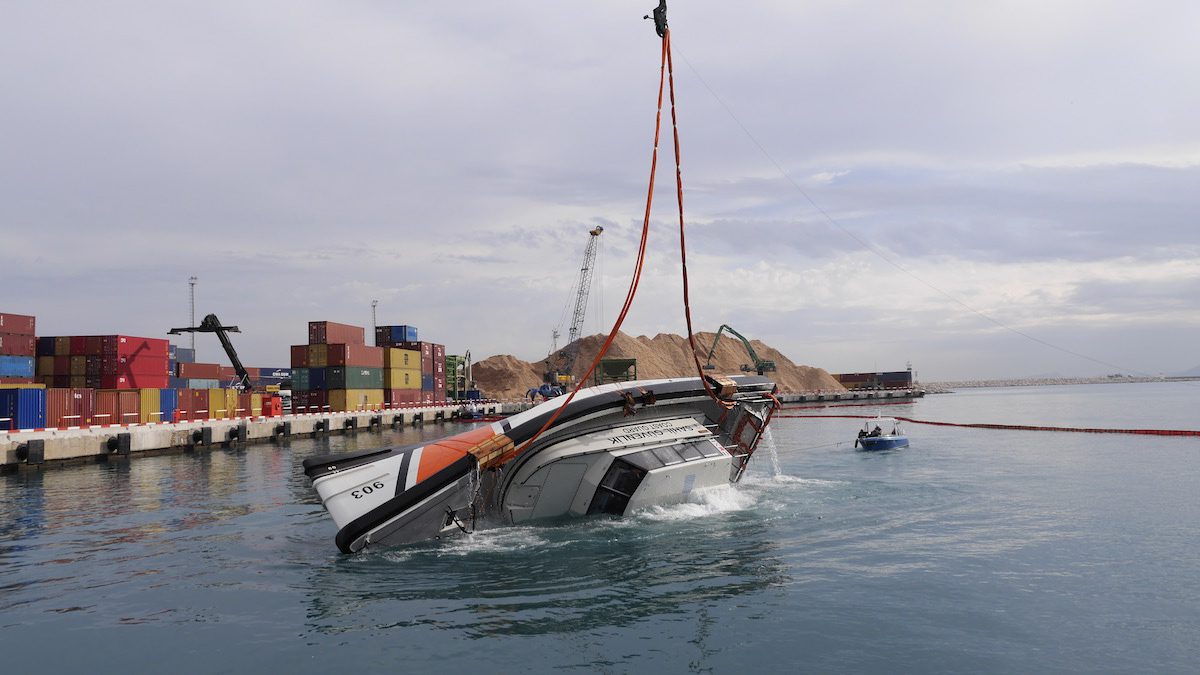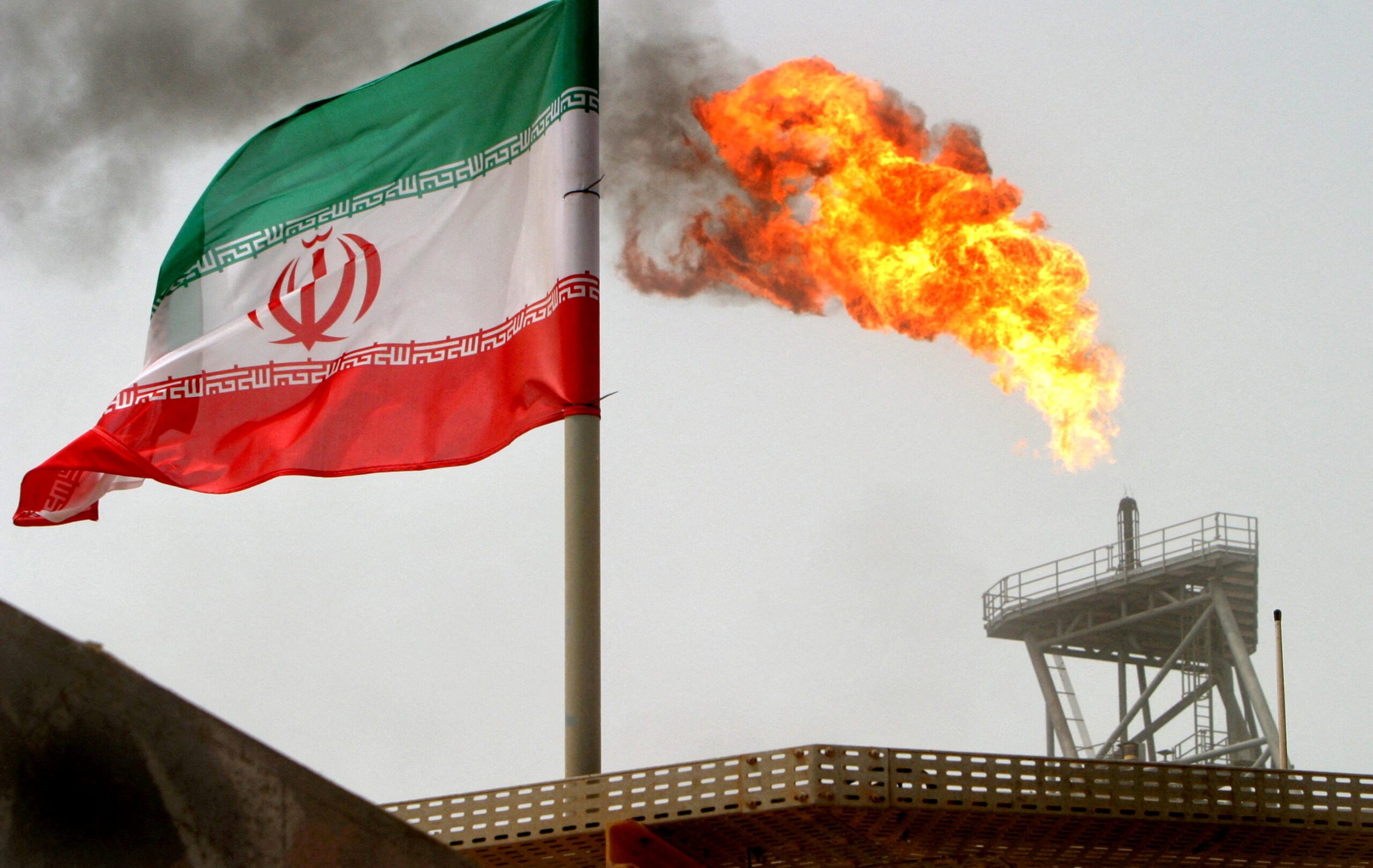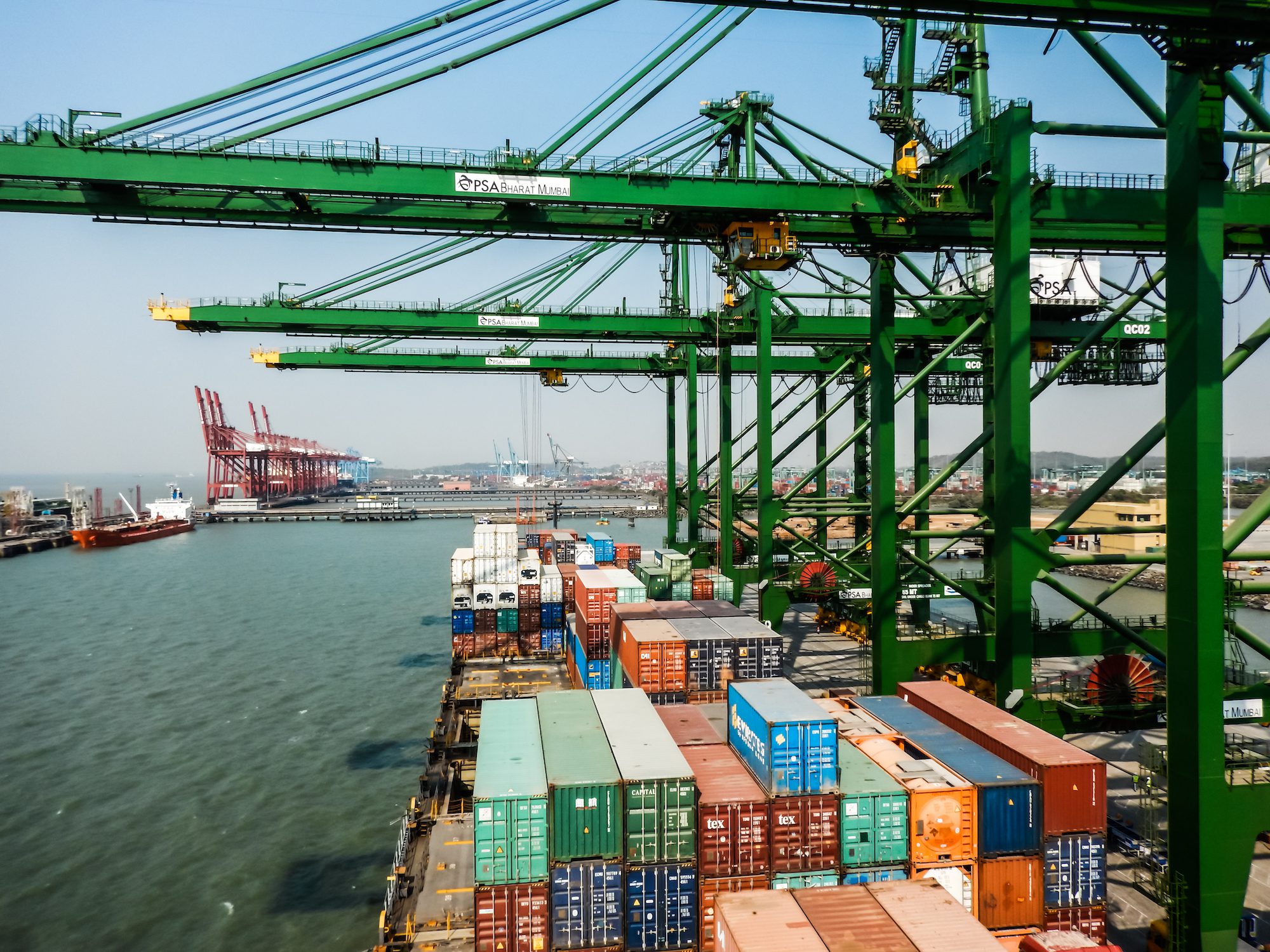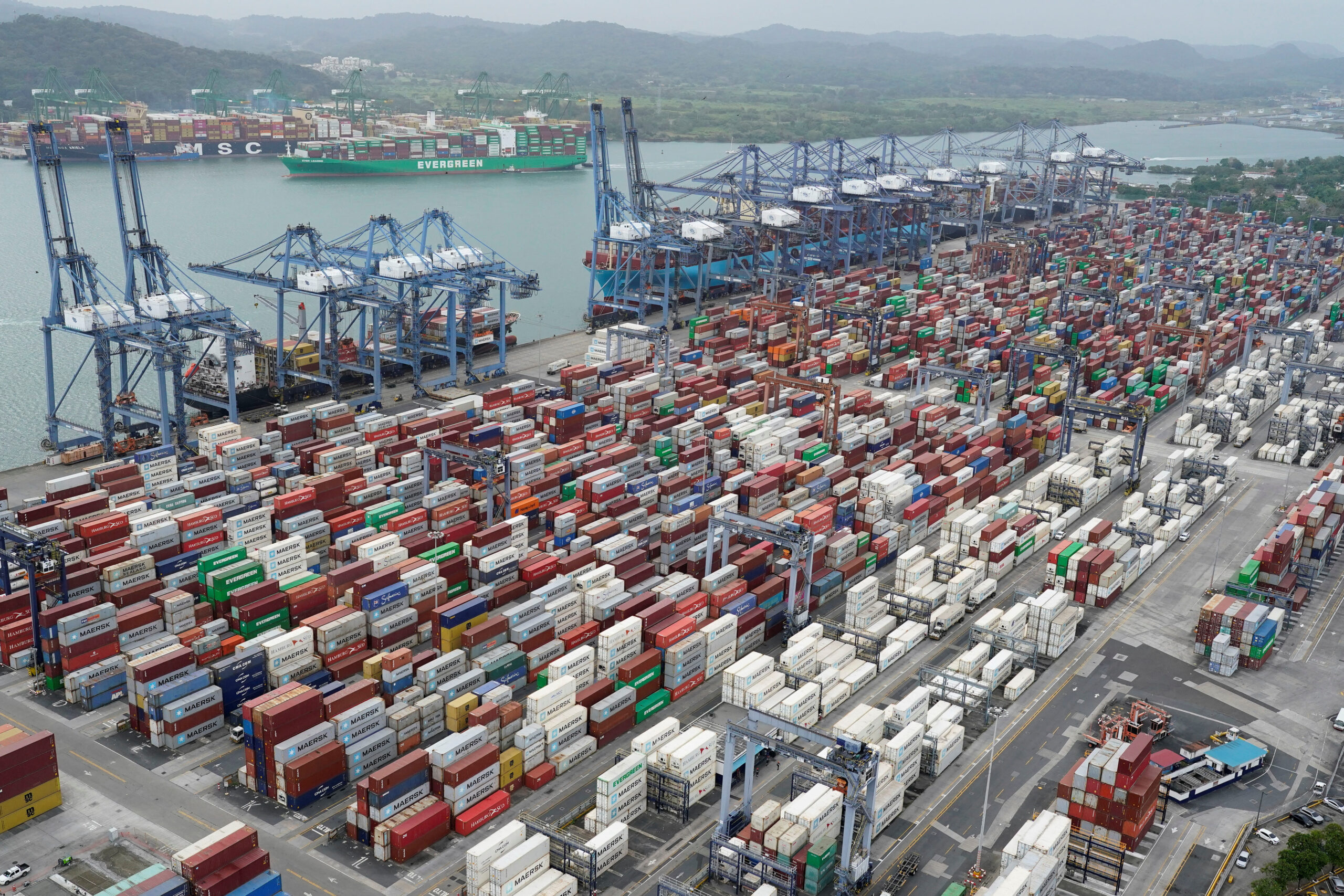Roll-over testing of SAR 1906. Photo: Damen
A new search and rescue vessel being built for the Turkish Coast Guard has successfully passed its capsize test with its engines running, marking a first for self-righting SAR vessels, according to Dutch shipbuilder Damen.
The full-scale roll-over testing of the Damen-designed Search and Rescue Vessel 1906 were performed in Antalya, Turkey in cooperation with the Turkish Coast Guard and the International Organization for Migration (IOM), in addition to engine manufacturer MTU.
The Damen SAR 1906 was first introduced to the market almost five years ago, and the award-winning design continues to improve through ongoing research, according to Damen. The design itself is the result of close collaboration between Damen and the Royal Netherlands Sea Rescue Institution (KNRM), Delft University of Technology, De Vries Lentsch Naval Architects.
“This unique test with running engines was at the Turkish Coast Guard’s request. This excellent result has been accomplished with the great cooperation between all parties,” comments Damen’s Sales Manager Boran Bekbulat.
“Moreover, we are proud to say that this is the first time that such a roll-over test has been carried out successfully with running engines. We would like to thank the Turkish Coast Guard for challenging us to test our limits. Most importantly, proving the capabilities of the vessel for which she is designed, giving her crew the confidence and the control in all weather conditions,” said Bekbulat.
In preparation for the unique roll-over test, Damen collaborated with engine manufacturer MTU.
“We have been working closely with MTU to develop and improve engine software that is able to handle a capsize situation,” said Meredith Dijkstra, a Product Portfolio Manager for Damen High Speed Craft. “This has been backed up by engine roll-over tests at their facilities and our own proven investigations into the roll-over capacity of the SAR 1906.”
In the event of a capsize, most likely due extreme weather situations, a capsize switch detects the roll-over and signals the engine software to go into ‘roll-over mode’.
“At this moment, the water jets are automatically clutched out and the engine returns to idle mode to protect the engine,” Dijkstra explains. “This continues until the software detects the vessel has righted itself and the crew can directly regain control.”
The SAR 1906 also has several mechanical design features in place to enable continuous and safe operation of the engine. “We purposely used mechanical solutions, instead of electronic solutions, because they are safer and more durable,” she added.
“After all, this is the principle that we have been working towards; when all other vessels have to turn back to port because of bad weather, the SAR 1906 needs to be able to continue her work when no one else can.”
Here’s a sequence showing the test:
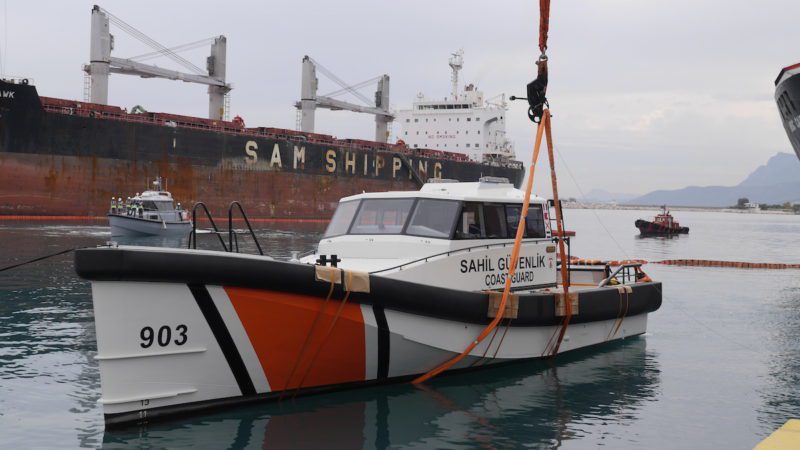
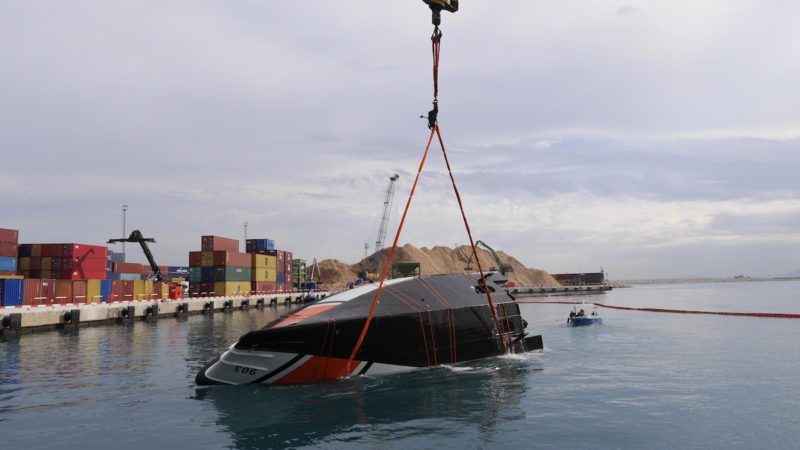
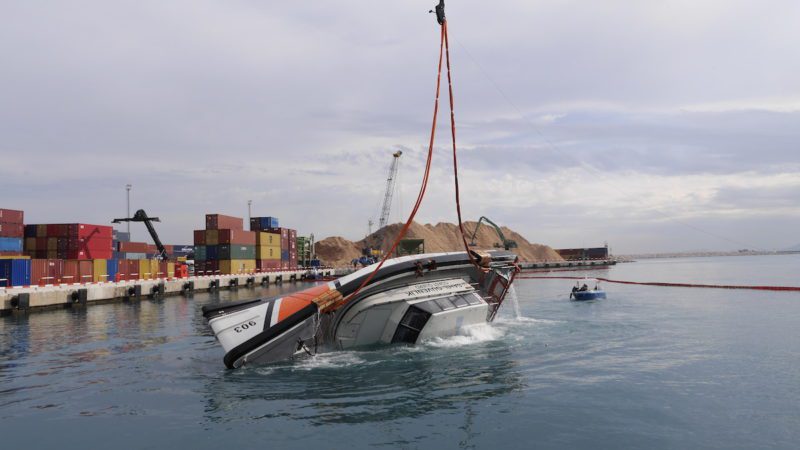
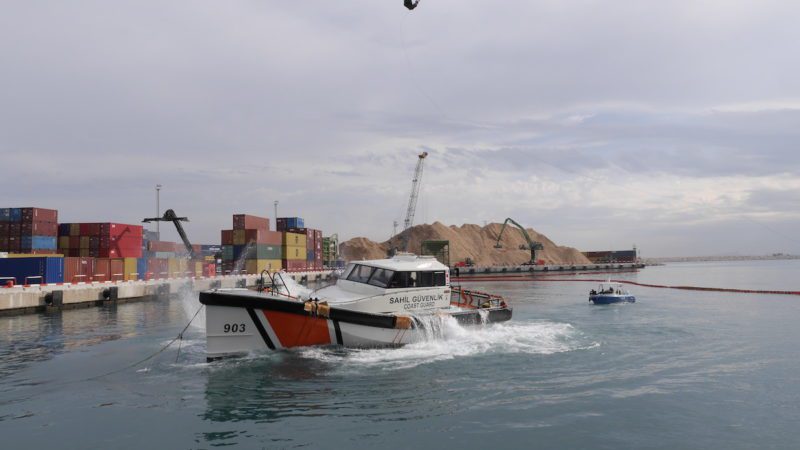

 Join The Club
Join The Club



